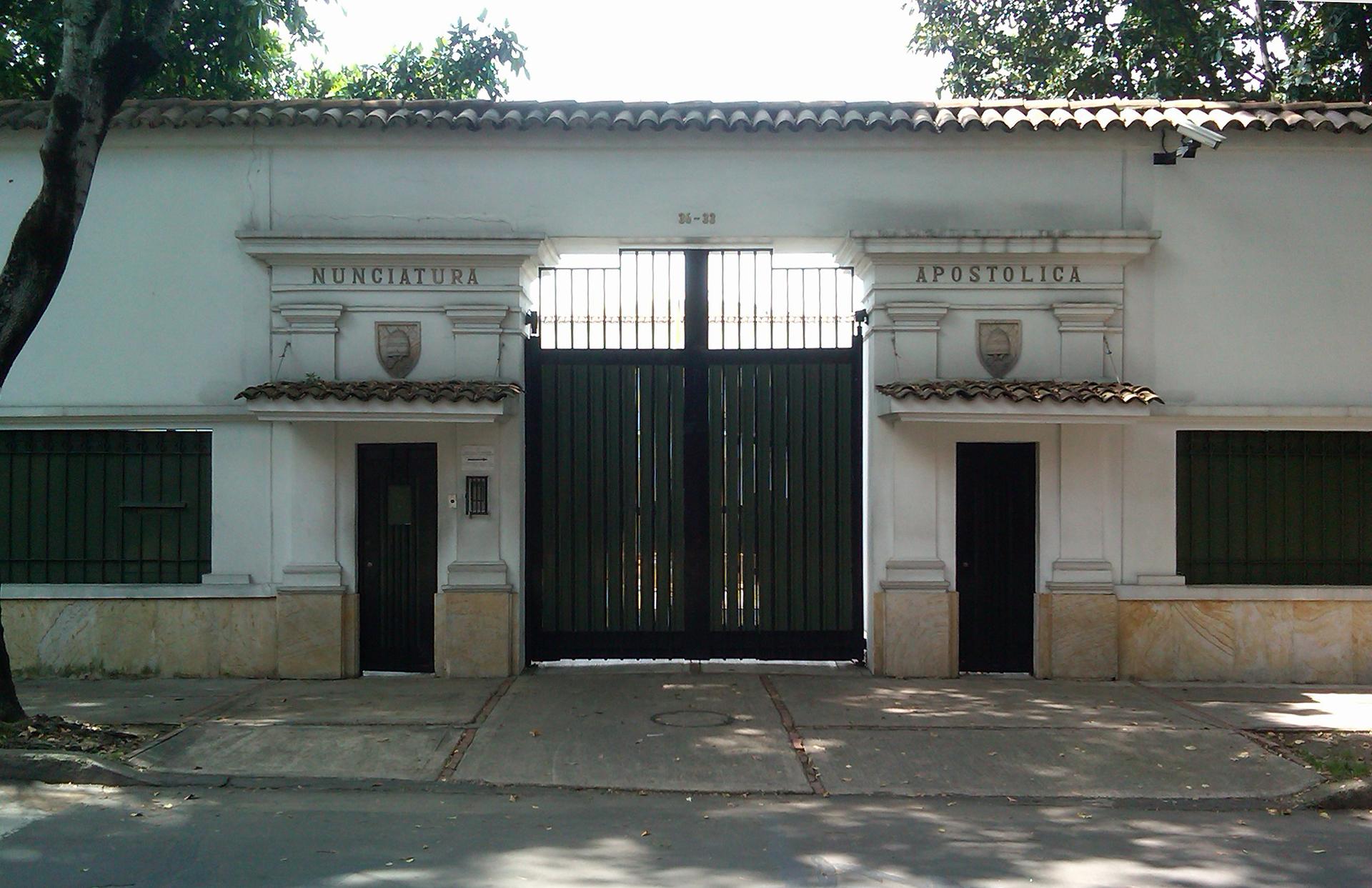SÃO PAULO, Brazil – After two days occupying the apostolic nunciature in Bogotá, protestors agreed to leave.
They were protesting the violence of paramilitary groups against community leaders and Indigenous peoples and will now hold a meeting with the government about potential solutions.
The group of about 15 activists got into the area on Jun. 4, during a march that had began in front of the Interior Ministry. They were members of a civic organization called Congreso de los Pueblos (Congress of the Peoples), which gathers 600 different community and social justice associations. They were promoting a “national mobilization for life and permanence in the territories.”
They ended up setting up a “humanitarian refugee camp” at the nunciature’s parking area.
The group also included Indigenous and peasant activists, and put up road blockades in different regions of Colombia.
The demonstrators’ main goal was to demand of the government the urgent demobilization of the right-wing paramilitary groups that have been operating in the South American nation for decades.
RELATED: Amid growing violence in southwestern Colombia, Church calls for dialogue and peace
Initially established by conservative forces in order to combat communist guerrillas as the Revolutionary Armed Forces of Colombia (FARC), the paramilitary organizations gradually began to control vast territories and got involved in delinquency.
Left-wing groups like Congreso de los Pueblos accuse the paramilitaries of harassing entire communities and killing their leaders.
That was the case, for instance, of Narciso Beleño, a long-time peasant leader in the Bolivar department who was shot dead on Apr. 21 after denouncing the presence of paramilitary forces in the region.
According to the Institute of Studies for Development and Peace (INDEPAZ), at least 72 community leaders have been killed in Colombia so far in 2024.
Some of the demonstrators also occupied offices of the Interior Ministry.
Congreso de los Pueblos said in a statement that the national government must “adopt effective measures to dismantle paramilitarism, taking into account its growth through the territories, controlling – either through terror or cooptation – the autonomous action of communities, putting their existence at risk.”
RELATED: Church worried about growing violence in south Colombia
In its online publications, the organization published a set of eight central themes for which it was protesting: change of the national security doctrine; dismantling paramilitarism; urgent protection and self-protection mechanisms; national plan to strengthen the People’s Congress; initial comprehensive repair plan; permanent table for national dialogue and negotiation; mobilization guarantees; and compliance with agreements.
“For several years now, the dismantling of paramilitarism has been a common demand of popular processes in Colombia, given the profound impacts it has left on the lives of people and communities,” the declaration read.
Congreso de los Pueblos said that it expected the authorities to listen to them and to demonstrate “political will to provide a solution.”
According to Father Hector Henao, a long-time Church peace mediator who was invited to dialogue with the activists, on that same night the government managed to reach a deal with them.
RELATED: Despite major blow to peace talks with guerrillas, Colombia Church still confident
The authorities promised to establish a permanent conversation table to deal with the numerous demands presented by the demonstrators, including the dismantling of paramilitarism.
“The challenges were numerous, but an agreement was reached and a conversation table was set up to discuss the threats and killings of community leaders,” Henao told Crux, adding that the table “has mostly a social nature, focusing on themes like protection, human promotion, and safety for communities.”
Henao said some of the demands presented by the protestors have to do with their consolidation as an organization and it’s “up to the national government to analyze the pertinence and the possibility of responding to such requests connected to the organization’s internal strengthening.”
The demonstrators left the apostolic nunciature on Jun. 6 by the morning. According to the Congreso de los Pueblos’ spokesman, the decision was taken after the Interior Ministry decided to create a negotiation table with the movement.
Despite the successful initial dialogue, minister Luis Fernando Velasco had said on Jun. 5 that it was “unfair to the other peasant communities” to blockade the roads. He also said that to “believe that the problem of paramilitarism will be solved at a conversation table is not real.”
The apostolic nunciature in Colombia has yet to comment on the issue.














